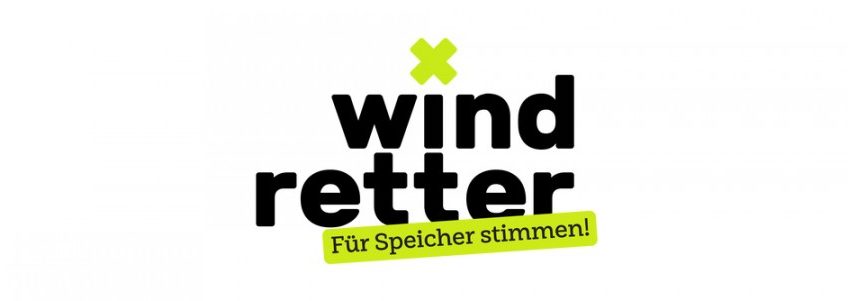Renewable energy has not been used to its full extent for many years. This could change, however, through energy storage systems. But these are often affected by high costs and legal uncertainties. The Windretter (literally “Windsaver”) campaign advocates storage technologies as important building blocks for the energy transition. The general public can now support this initiative by signing the online petition.
With a contribution of 16.1%, wind energy accounted for the second largest share of German electricity production for the first time in 2017 – ahead of nuclear energy and coal. This development is accompanied by challenges, as wind and sun are not dependent on the prevailing level of electricity consumption. In order to keep the electricity grid stable in terms of the balance between generation and consumption, the first step is to reduce the electricity production of wind turbines and photovoltaic plants as soon as the demand for electricity is low. This energy that could be readily stored. The amount of electricity that was “capped” last year alone was 5.5 terawatt hours, which is almost as much as the city of Hamburg consumes in half a year. If this amount had been generated from renewable sources, the equivalent of 3 million tons of CO2 could have been saved. Storage technologies also have the great potential of enabling renewable energy to be used in transport, logistics, industry and for the supply of heat. In 2017, renewables in Germany accounted for 36% of gross electricity consumption – but contributed only 5 % to final energy consumption in the transport sector.
The Windretter campaign aims to motivate the German Bundestag to reconsider electricity storage within the legislative framework of the energy transition: open to all technologies, flexible and innovative, in order to raise the climate-protecting potential of storage technologies.
More information can be found here (in German): www.windretter.info


